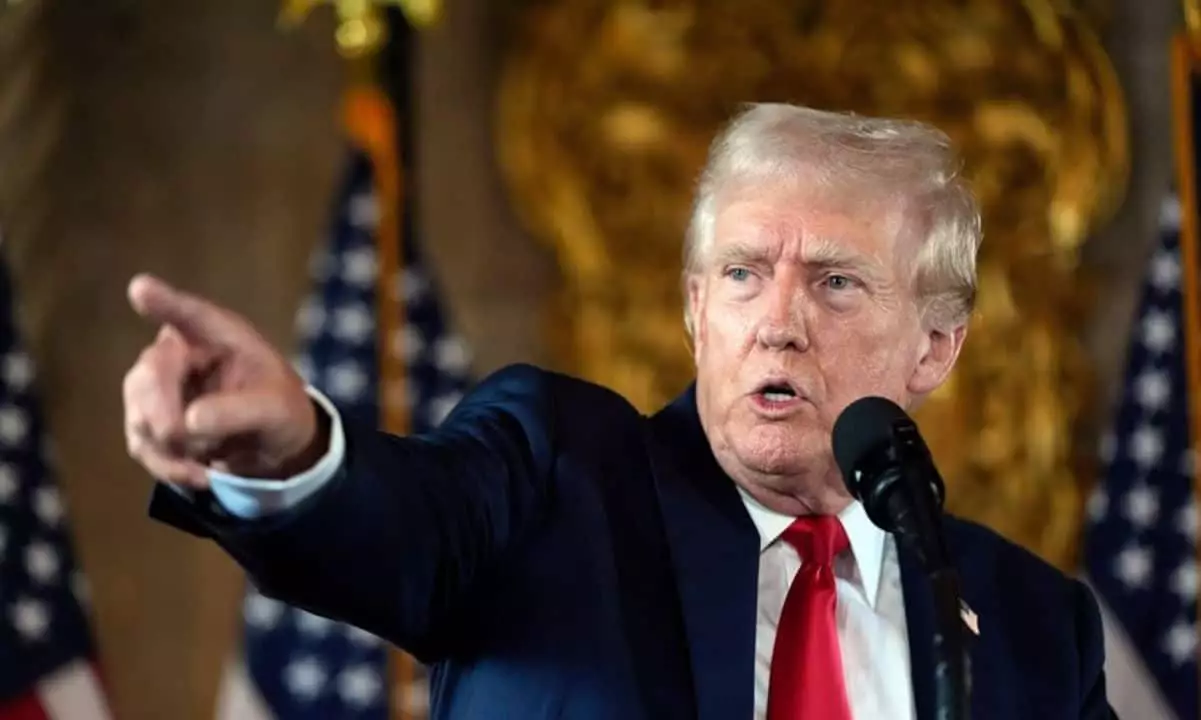Recent revelations from the United States Federal Election Commission (FEC) have shed light on significant financial donations made by prominent venture capitalists in support of Donald Trump’s political aspirations. Notable figures Marc Andreessen and Ben Horowitz have each pledged an impressive $2.5 million to the super PAC known as Right For America. This alignment with Trump appears to stem from their perception that his policies will favor the cryptocurrency sector and foster an environment conducive to startup growth—a concept they have dubbed the “little tech agenda.” Their enthusiasm for Trump’s leadership suggests a strategic move as the crypto landscape grows ever more intertwined with political dynamics.
Moreover, Andreessen has not stopped there, contributing the maximum allowable donation of $844,600 directly to Trump’s campaign and the Republican Party. This form of political funding highlights a broader trend in which influential figures within the tech industry seek to mold governmental approaches to emerging technologies, particularly in the volatile crypto space. Interestingly, Ben Horowitz made headlines earlier this month by indicating potential support for Vice President Kamala Harris’ presidential campaign, although the details surrounding this donation remain unclear amidst speculation regarding her stance on cryptocurrency.
Adding to the intrigue, Chris Larsen, a co-founder of Ripple, surprised many by donating $1 million worth of XRP tokens to Future Forward, a PAC that backs Kamala Harris. This move raises eyebrows considering the Securities and Exchange Commission’s ongoing litigation against Ripple, which has been a source of contention since 2020. The juxtaposition of Larsen’s support for a candidate whose administration has not openly engaged with crypto policy, alongside the substantial contributions to pro-Trump organizations, reflects a complex tapestry of allegiances and strategic funding within the tech and finance spheres.
The Right For America PAC, in contrast, appears well-funded and organized, boasting a $27.8 million fundraising total along with $43.6 million in available cash as the campaign approaches its critical phases. They are prioritizing expenditures in key swing states—namely, Arizona, Georgia, and Pennsylvania—a strategy indicative of the necessary groundwork to sway electoral outcomes.
The involvement of high-profile figures like Miriam Adelson, who has contributed a staggering $95 million to Preserve America PAC, further exemplifies the extensive financial backing fueling Trump’s campaign. Elon Musk’s commitment to supporting pro-Trump super PACs adds yet another layer to this already intricate political narrative. As of late, the Republican Party is visibly benefiting from a surge in PAC donations, outpacing their Democratic counterparts as the 2024 elections approach.
The increase in crypto-oriented super PACs signifies a concerted effort from the digital asset industry to influence legislative and regulatory frameworks affecting their market. The Fairshake PAC and its affiliated committees, having raised over $200 million, demonstrate a robust mobilization of resources aimed at preserving and expanding the interests of the cryptocurrency sector.
As cryptocurrency continues to carve out its role in the broader economic and political narrative, the evolving relationships between tech titans, financial contributions, and political candidates will likely shape the future landscape of regulation and innovation in the digital space. Navigating these waters will require not only financial acumen but also an understanding of the complex intersections between technology, policy, and public sentiment.
















Leave a Reply